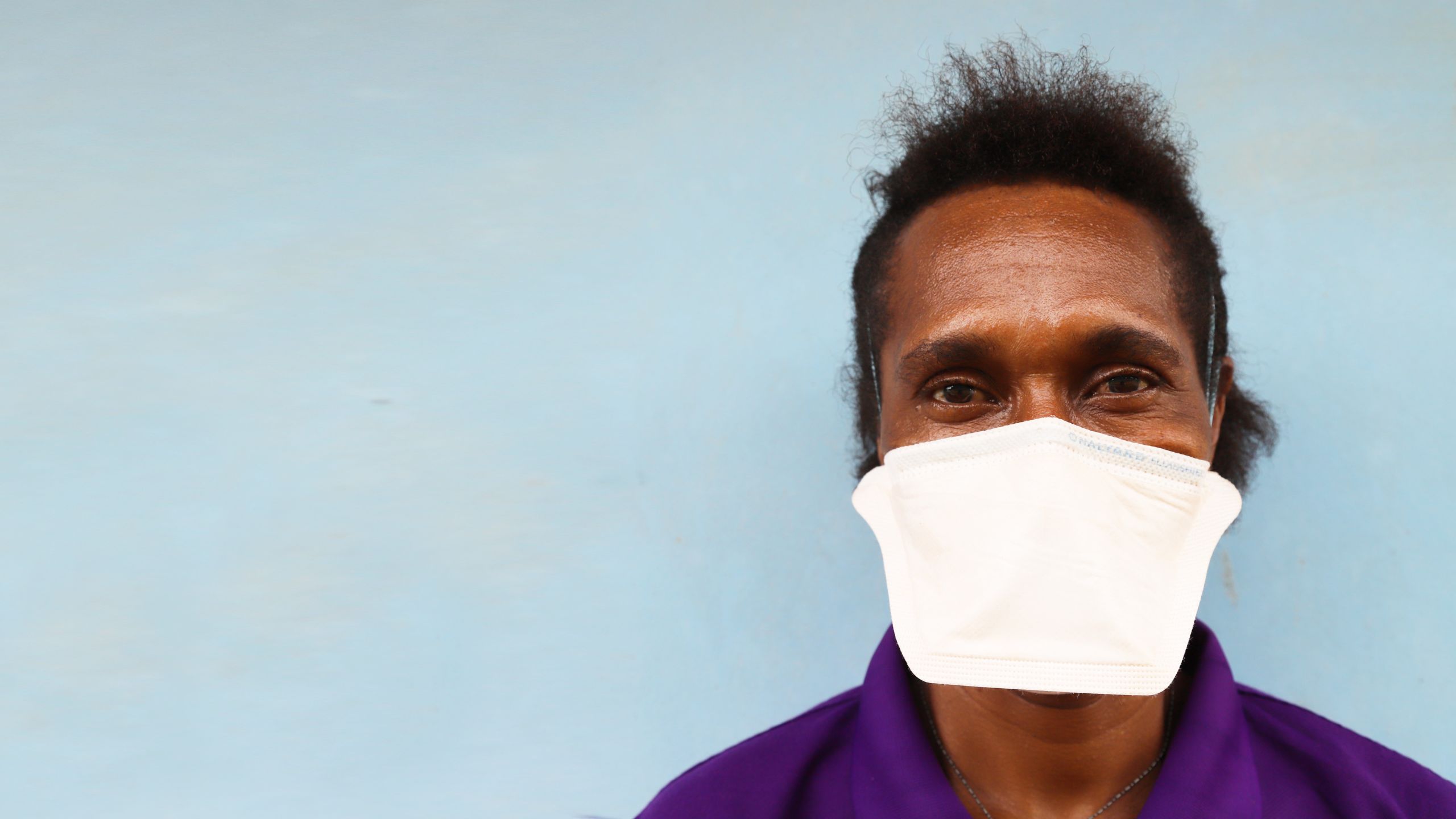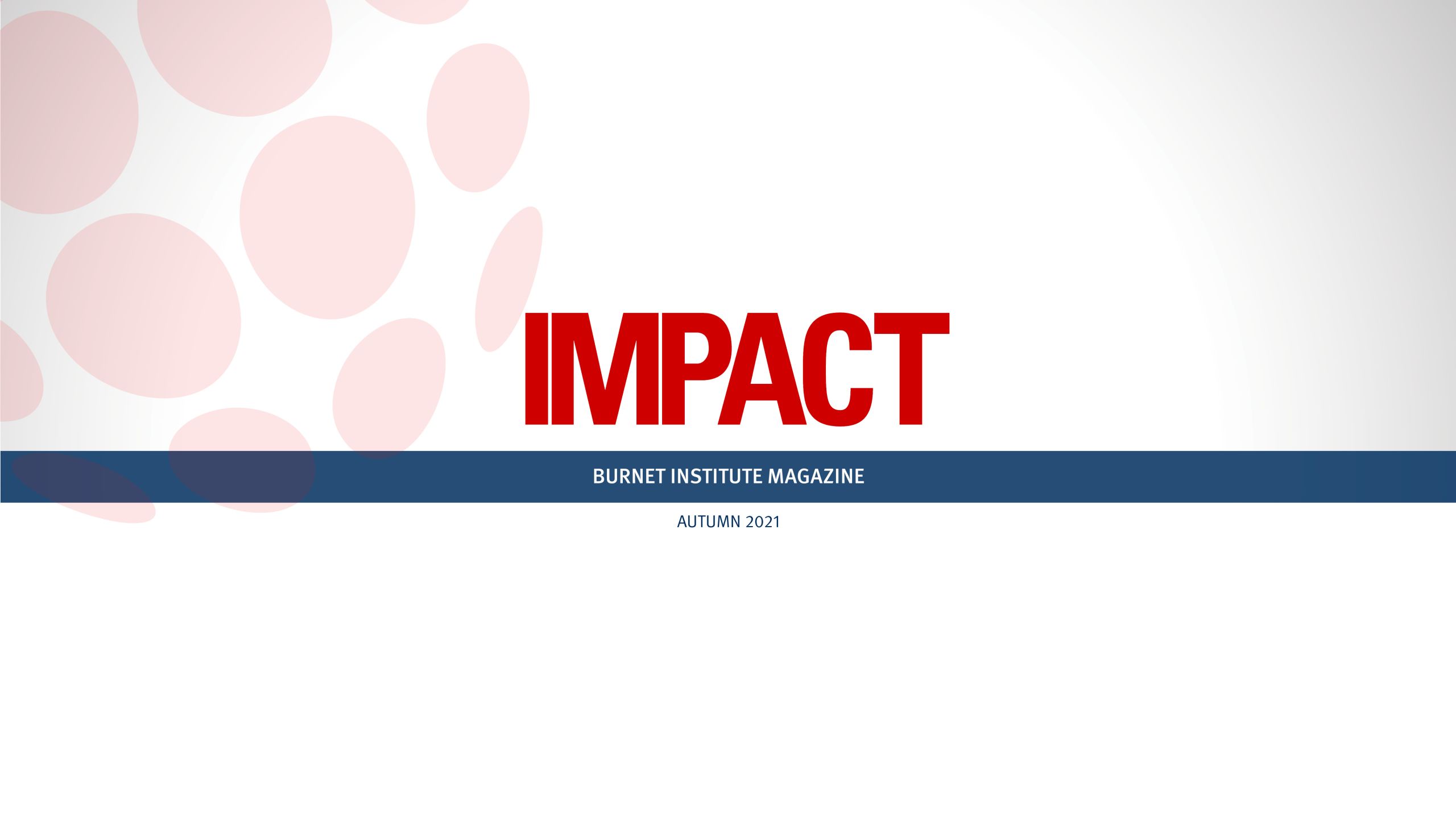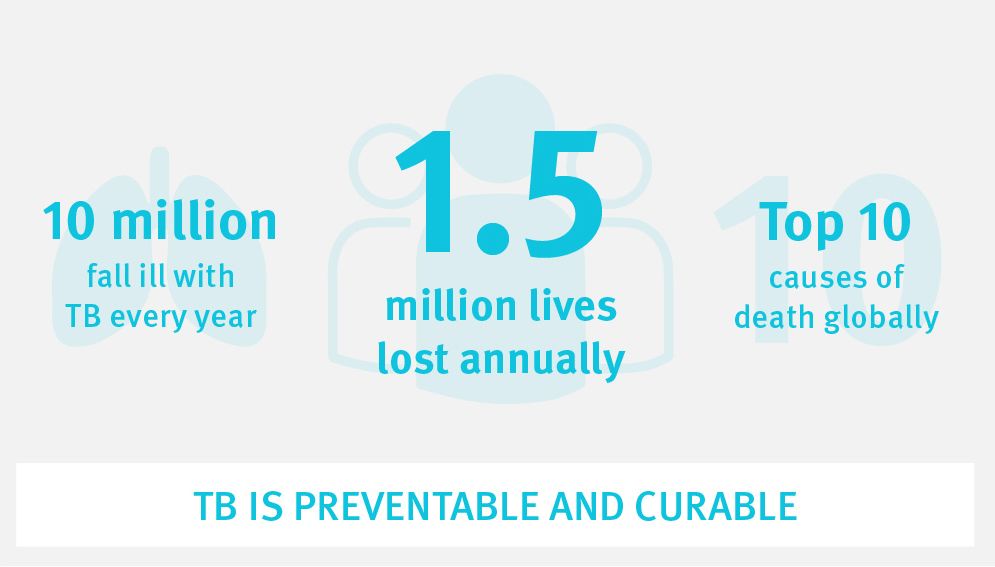
TUBERCULOSIS
IN A COVID-19 WORLD
The world’s deadliest infectious disease is on the rise. And no, it’s not COVID-19.
As we continue to address the COVID-19 pandemic, tuberculosis (TB) is killing 1.5 million people each year. Disruptions to essential health services and access to treatment have set back TB progress by 12 years. But what COVID-19 has demonstrated is what’s possible with political will and global commitment to a cause.

This year, as we continue to address the COVID-19 pandemic, many parallels with tuberculosis (TB) have become apparent, most notably the devastating health, social, and economic impacts of both diseases.
“Both TB and COVID-19 are airborne infections that can be addressed together through an integrated response involving testing, community engagement, contact tracing, infection control and real-time surveillance,” Burnet Institute Infectious Diseases Specialist, Dr Khai Huang, said.
“There is an opportunity to strengthen the health system preparedness and response overall.”
TB has killed more people than any other infectious disease in history. Each year, more than nine million people, many of them children, also struggle to overcome the debilitating effects of the disease which impacts adversely on their daily lives.
World TB Day is marked on 24 March each year, the day in 1882 when Dr Robert Koch announced that he had discovered the bacterium that causes TB, opening the way towards diagnosing and curing the disease.
Burnet is committed to working towards the ambitious global target to eliminate TB as a public health threat by 2035 through providing on-the-ground assistance and support, training and building capacity, conducting research to inform policy, and working with partnerships at global and national level to drive an agenda of change.
Please support our life-saving research | Donate today
Over the past 12 months, the COVID-19 pandemic has negatively impacted progress towards TB elimination through disruptions to essential health services, access to treatment, and diversion of resources, which, according to the StopTB Partnership, eliminated 12 years of progress in the fight against TB.
Burnet TB Counsellor, Desmond Samson can attest to this impact in Daru, Western Province, Papua New Guinea.
“With the situation of COVID-19, social distancing is one of the prevention measures,” Mr Samson said.
“Some of the treatments require group activities, and this has been put on hold, which makes it more difficult to support our patients at treatment sites.”
According to the StopTB Partnership, although COVID-19 is currently the most common cause of death from an infectious disease globally, in low- to middle-income countries TB deaths remain far higher than those from COVID-19.
While the world is responding to COVID-19 with unprecedented political will and global commitment, TB continues to kill an estimated 1.5 million people every year, despite being declared a Global Emergency by the World Health Organization (WHO) in 1993.

“We must also do more in the Indo-Pacific region with funding for the recovery of TB and essential health services negatively impacted during the COVID-19 crisis,” Dr Huang said.
You're reading IMPACT magazine | Subscribe today
“This will require an integrated response program to strengthen health systems and will also safeguard against future pandemics.
“It’s not only the right thing to do, it’s also a smart investment.”

Make an Impact | Donate Today
Choose to make a gift to Burnet Institute. Every donation makes a difference to the lives of vulnerable communities where we work.
Contact Us
If you would like to discuss this edition with our team please contact Tracy Parish.
E: communications@burnet.edu.au
T: +61 3 9282 2111
Where possible people who appear in images included in this publication were photographed with their permission. There is no implication that these people have any infectious diseases.
Stay across the latest from Burnet Institute
Subscribe to IMPACT magazine today
Discover the IMPACT of Burnet’s medical research breakthroughs and public health projects in the Institute’s bi-annual magazine.
